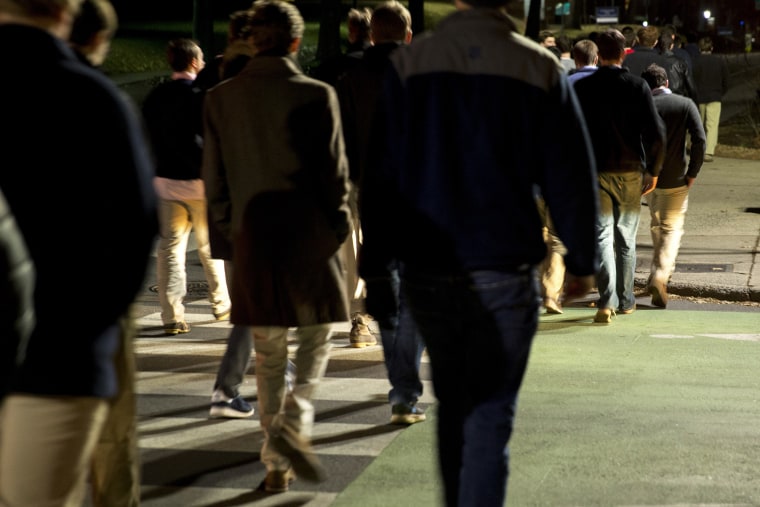University of Virginia President Teresa Sullivan elaborated plans on Friday for the university to move forward on campus safety. Her address came amid ongoing national debate about how best to prevent campus sexual assault and after sororities decried the recommendation that their members should stay home from fraternity parties as a safety measure.
Sullivan said a Rolling Stone story about an alleged gang rape and the climate on campus around sexual assault "unfairly maligned UVa and many members of our community." She added, referring to numerous disputed accounts in the story that are currently being examined by an independent Columbia Journalism School review, "Before the Rolling Stone story was discredited, it seemed to resonate with some people simply because it confirmed their darkest suspicions about universities — that administrations are corrupt; that today's students are reckless and irresponsible; that fraternities are hot-beds of deviant behavior. Working together, we have soundly refuted those suspicions through our actions over the past two months."
RELATED: UVA sororities enraged over fraternity party ban
A police investigation into the allegations has not yet concluded, but on Jan. 12 the university reinstated the fraternity named in the story, a move it said it took “after consultation with Charlottesville Police Department officials, who told the University that their investigation has not revealed any substantive basis to confirm that the allegations raised in the Rolling Stone article occurred at Phi Kappa Psi.”
The campus is currently in an uproar over a letter sent by the national chapter presidents telling sorority sisters to skip "Boys’ Bid Night" and stay home instead. The Washington Post reported that "at some U-Va. chapters in recent days, students described mandatory emergency meetings with representatives from their national chapter telling them they risked suspension, fines and other penalties if any of them attended bid night parties." Women on campus have objected, saying the implication is sexist and places the onus on them to keep themselves out of harm's way entirely rather than on the fraternity brothers to keep their parties safe.
Asked about the ban Friday, Sullivan said she hadn't spoken with the National Panhellenic Conference, "nor did I consult them about the letter they sent."
Sullivan previously announced new guidelines for fraternities and sororities, including an addendum to the Fraternal Organization Agreement that regulates the group. It includes rules like sober safety monitors and restricting pre-mixed drinks and punches.
Sullivan's speech Friday addressed issues beyond those relating to Greek organizations. She said the university had expanded police presence and brought in trainers from an international security firm, and that it would participate in a "climate survey" organized through the Association of American Universities to measure sexual assault prevalence on campus.
